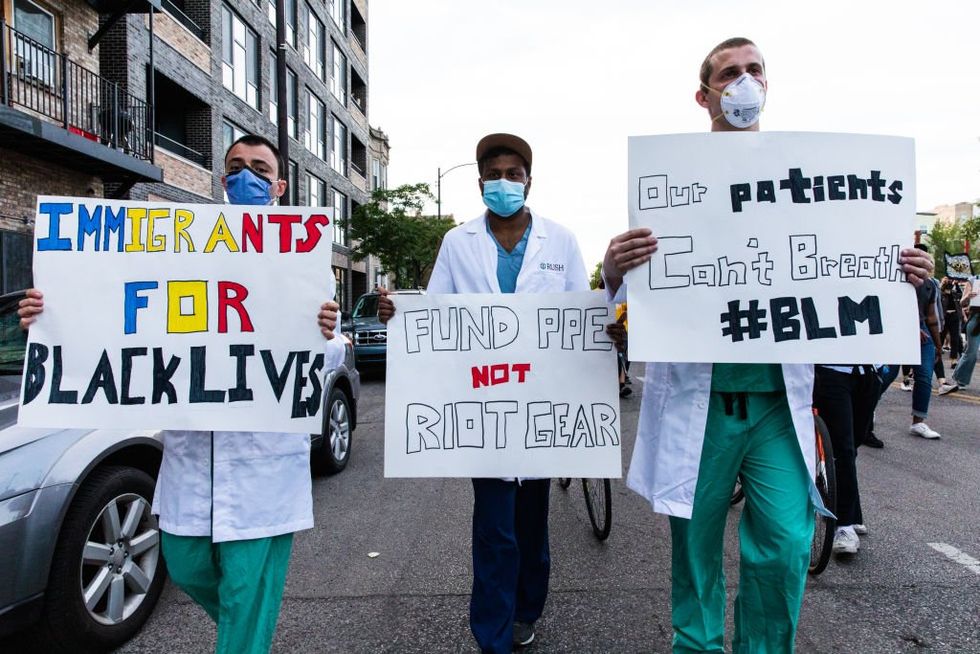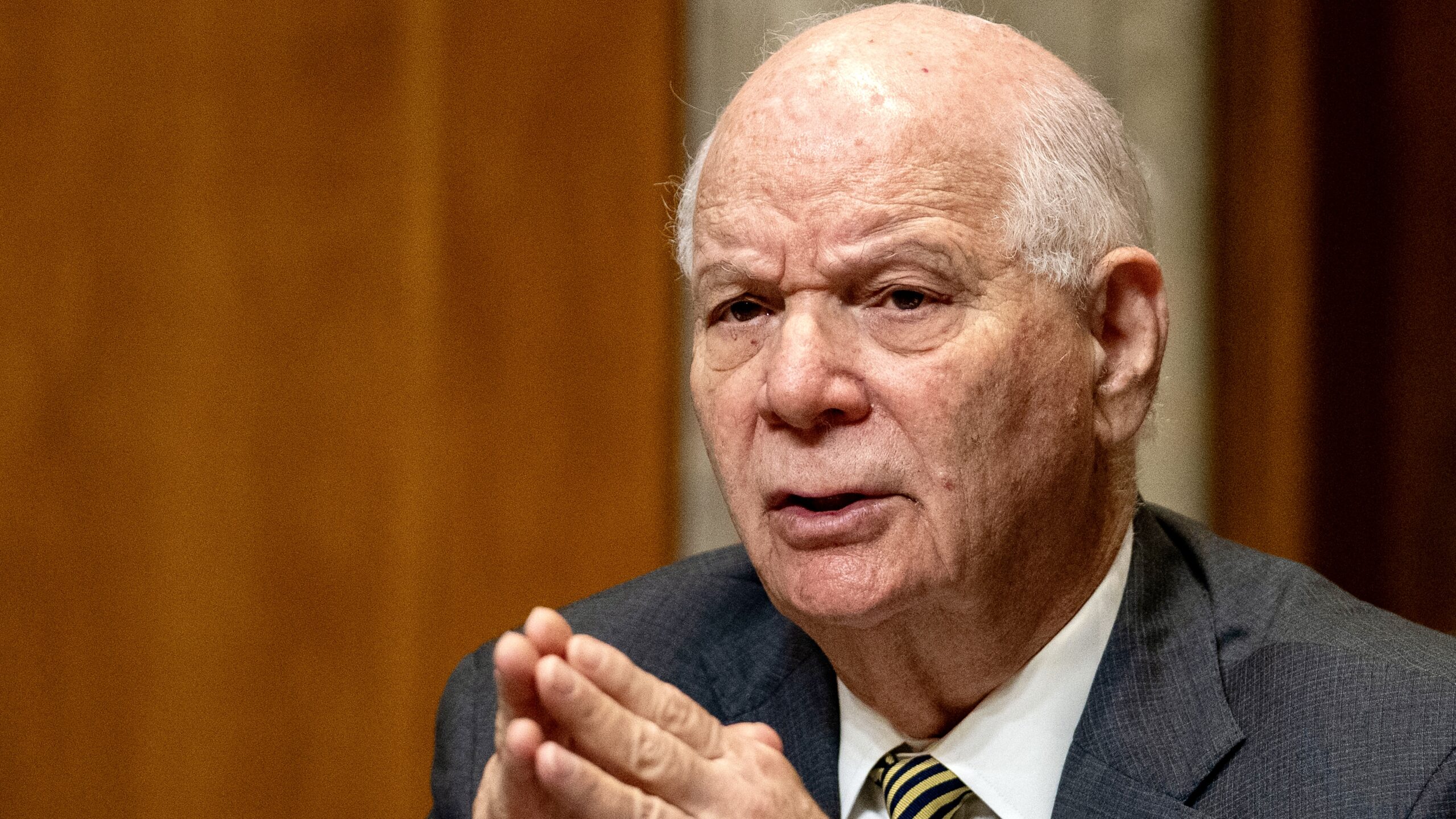DEI gave us Kamala Harris — the doctors it produces may be even worse
We've had mediocre presidential candidates before, elevated beyond their ability thanks to money, connections, or their family name. Kamala Harris is the first one to make it to the top explicitly because of her race and sex. As such, she's the living embodiment of DEI.If Donald Trump defeats her, it will certainly strike a potent blow against this poisonous ideology. But Harris is merely the most high-profile beneficiary. Our institutions are already so captured by DEI that American lives are at stake. Is a white man’s life worth less than a black woman’s? Through DEI’s oppressor-victim hierarchy, the answer is unequivocally yes. Any serious attempt to undo the damage of a decade's worth of anti-meritocratic policies must begin in our medical schoolsIll communicationA recent report from the medical watchdog organization Do No Harm makes for a sobering read. American medical schools are prioritizing political agendas over essential health care education, with potentially dire consequences. Titled “Activism Instead of Anatomy,” the report claims that diversity, equity, and inclusion initiatives are overshadowing traditional scientific and medical training at institutions nationwide.At the heart of the problem lies a clear departure from rigorous scientific training toward ideologically driven content. Medical students are now being subjected to courses that prioritize social and political goals over traditional medical knowledge. This includes an increased emphasis on identity politics and social theories that have little to do with developing the skills and knowledge essential for competent medical practice. This shift is eroding the essential knowledge needed for effective patient care. Moreover, this shift comes amid declining public trust in the medical establishment, which, rather than rebuilding confidence, seems intent on pushing Americans away — or into an early grave.Rigor mortisOne of the report’s most alarming findings is the diversion of crucial time and resources away from core medical training. Medical curricula are already demanding, yet DEI-focused coursework consumes hours that should be dedicated to vital subjects like anatomy, pathology, and pharmacology. Essentially, the rigor of medical education is being diluted, leaving future physicians less prepared for real-world challenges.Beyond replacing essential training, this ideological shift raises serious ethical concerns. Students are pressured to adopt a specific worldview, with dissent risking punishment (more on this later). Ironically, in the name of inclusivity, medical schools are stifling intellectual diversity. Training doctors to view patients primarily through an identity-based lens fosters division and undermines the principle of treating individuals as individuals. Is a white man’s life worth less than a black woman’s? Through DEI’s oppressor-victim hierarchy, the answer is unequivocally yes. White privilege has never looked so distinctly dangerous. This is not hyperbole. When identity politics and political correctness dominate medical training, there is a tangible risk of professionals prioritizing ideological considerations over evidence-based care. For example, as the report notes, the fixation on “correct” language and politically charged issues like transgender health care has, in some cases, overshadowed the need for solid, patient-centric approaches. While culturally competent care is essential, it should not replace scientifically sound medical practice but complement it.Doctor FeelbadThis ideological push in medical schools risks seeping into the broader health care system. When doctors-in-training are taught to prioritize identity markers and politically charged agendas over clinical facts, this mindset can infiltrate hospitals and influence health care policies, compromising every single aspect of patient care. The obsessive focus on DEI initiatives often sidelines efficiency and merit-based advancement, ultimately affecting patient outcomes.Remember, DEI agendas come at the cost of meritocracy. As a result, medical schools are not only admitting objectively less qualified students, but they are also producing objectively less competent doctors compared to just a few generations ago.DEI is genuinely destructive, posing existential risks in critical areas. In truth, it's a matter of life and death, with significantly higher amounts of the latter, if the report is to be believed.What we’re witnessing here is the professionalization of grievance and the prioritization of activism over expertise. Medical schools, once places of necessary knowledge and innovation, have transformed into training grounds for the next generation of political activists. The lunatics really are running the asylum. Worse yet, much of the DEI narrative rests on a shaky foundation. Or, to be more accurate, no foundation at all. Stage 4 racismRecently, Dr. Kendall Conger, a former emergency physician at Duke University Health System, was termina


We've had mediocre presidential candidates before, elevated beyond their ability thanks to money, connections, or their family name. Kamala Harris is the first one to make it to the top explicitly because of her race and sex. As such, she's the living embodiment of DEI.
If Donald Trump defeats her, it will certainly strike a potent blow against this poisonous ideology. But Harris is merely the most high-profile beneficiary. Our institutions are already so captured by DEI that American lives are at stake.
Is a white man’s life worth less than a black woman’s? Through DEI’s oppressor-victim hierarchy, the answer is unequivocally yes.
Any serious attempt to undo the damage of a decade's worth of anti-meritocratic policies must begin in our medical schools
Ill communication
A recent report from the medical watchdog organization Do No Harm makes for a sobering read. American medical schools are prioritizing political agendas over essential health care education, with potentially dire consequences.
Titled “Activism Instead of Anatomy,” the report claims that diversity, equity, and inclusion initiatives are overshadowing traditional scientific and medical training at institutions nationwide.
At the heart of the problem lies a clear departure from rigorous scientific training toward ideologically driven content. Medical students are now being subjected to courses that prioritize social and political goals over traditional medical knowledge.
This includes an increased emphasis on identity politics and social theories that have little to do with developing the skills and knowledge essential for competent medical practice. This shift is eroding the essential knowledge needed for effective patient care. Moreover, this shift comes amid declining public trust in the medical establishment, which, rather than rebuilding confidence, seems intent on pushing Americans away — or into an early grave.
Rigor mortis
One of the report’s most alarming findings is the diversion of crucial time and resources away from core medical training. Medical curricula are already demanding, yet DEI-focused coursework consumes hours that should be dedicated to vital subjects like anatomy, pathology, and pharmacology.
Essentially, the rigor of medical education is being diluted, leaving future physicians less prepared for real-world challenges.
Beyond replacing essential training, this ideological shift raises serious ethical concerns. Students are pressured to adopt a specific worldview, with dissent risking punishment (more on this later). Ironically, in the name of inclusivity, medical schools are stifling intellectual diversity.
Training doctors to view patients primarily through an identity-based lens fosters division and undermines the principle of treating individuals as individuals. Is a white man’s life worth less than a black woman’s? Through DEI’s oppressor-victim hierarchy, the answer is unequivocally yes. White privilege has never looked so distinctly dangerous.
This is not hyperbole. When identity politics and political correctness dominate medical training, there is a tangible risk of professionals prioritizing ideological considerations over evidence-based care.
For example, as the report notes, the fixation on “correct” language and politically charged issues like transgender health care has, in some cases, overshadowed the need for solid, patient-centric approaches. While culturally competent care is essential, it should not replace scientifically sound medical practice but complement it.
Doctor Feelbad
This ideological push in medical schools risks seeping into the broader health care system. When doctors-in-training are taught to prioritize identity markers and politically charged agendas over clinical facts, this mindset can infiltrate hospitals and influence health care policies, compromising every single aspect of patient care. The obsessive focus on DEI initiatives often sidelines efficiency and merit-based advancement, ultimately affecting patient outcomes.
Remember, DEI agendas come at the cost of meritocracy. As a result, medical schools are not only admitting objectively less qualified students, but they are also producing objectively less competent doctors compared to just a few generations ago.
DEI is genuinely destructive, posing existential risks in critical areas. In truth, it's a matter of life and death, with significantly higher amounts of the latter, if the report is to be believed.
What we’re witnessing here is the professionalization of grievance and the prioritization of activism over expertise. Medical schools, once places of necessary knowledge and innovation, have transformed into training grounds for the next generation of political activists. The lunatics really are running the asylum.
Worse yet, much of the DEI narrative rests on a shaky foundation. Or, to be more accurate, no foundation at all.
Stage 4 racism
Recently, Dr. Kendall Conger, a former emergency physician at Duke University Health System, was terminated for questioning the claim that racism is a "public health crisis."
When Conger requested data to support this assertion, none was provided. Instead of engaging in dialogue, the institution punished him for raising a legitimate concern. This reaction reveals the hostile environment that sane medical professionals now face, where challenging the narrative leads not to discussion but to retribution.
Cancel culture still exists. Common sense? Well, not so much.
The report’s conclusion is clear. Medical schools must resist this ideological encroachment and refocus on their primary mission: Equipping future doctors with the skills and knowledge to save lives and improve patient outcomes.
Yet, the damage seems done. Curricula take years to develop and implement. Even if the entire DEI agenda were addressed logically today, it would take years to return to the basics. In the meantime, more doctors will graduate, and more Americans will pay the ultimate price — with their lives.
Originally Published at Daily Wire, World Net Daily, or The Blaze
What's Your Reaction?

































































































